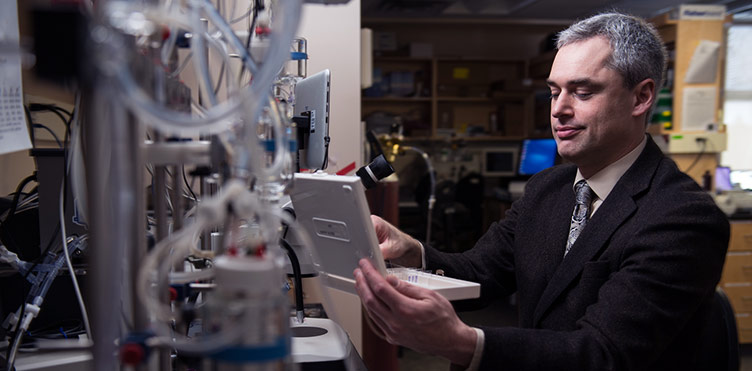Research

We play a critical role in providing research projects for the next generation of innovators. Undergraduate and graduate students also have the opportunity to work with faculty mentors in areas of discovery.
SASE is a hub of research of Coastal Studies and Health. We commit to research excellence in order to change the world we live in.
Researchers
Lucy Wilson
Lucy Wilson’s geoarchaeology lab works on innovative ways of understanding how prehistoric people moved across the landscape and exploited the resources of their territories, using information on the rocks used to make stone tools. Their data-based approach is garnering international attention.
Shelley Doucet
Shelley Doucet, professor in the Department of Nursing and Health Sciences, is the New Brunswick research lead for the Canadian Primary Care Research Network (CPCRN). The CPCRN is an established interdisciplinary and intersectoral network of people who collaborate on generating solution-focused innovations in primary health care delivery. The CPCRN’s vision is to create a sustainable pan-Canadian learning health system, supported by patient-oriented, practice-based research that improves primary care
One of Dr. Doucet's other impactful research initiatives is her work as the director of the Centre for Research in Integrated Care (CRIC). The centre is a living laboratory that develops and evaluates integrated models of patient-centred care for individuals with complex care needs and their families.
Tony Reiman
Dr. Tony Reiman is leading a pan-Canadian study on the lives of patients diagnosed with multiple myeloma, an incurable cancer of the blood and bone marrow. This study, the first of its kind, enables Dr. Reiman’s world-class research team to apply cutting-edge tools of precision and personalized medicine to better characterize, monitor and treat the disease.
Scott Pavey
Scott Pavey leads the Canadian Rivers Institute Genomics (CRI Genomics). The CRI Genomics Lab leverages state-of-the-art genomics techniques to address basic and applied questions in conservation, fisheries management, evolution and ecology. This research is used to conserve biodiversity, make aquaculture more sustainable and improve the management of fisheries. Examples of projects include high-resolution genome scans of cod and striped bass populations and using environmental DNA to determine the distribution of wood turtles in New Brunswick.
Facilities
William Ganong Hall, K.C. Irving Hall and the Canadian Rivers Institute are the three main science buildings on campus.
Ganong Hall is a four-storey building designed for biology, chemistry, geology and physics. The building hosts the largest lecture theatre on campus, undergraduate course laboratories, a large greenhouse, a controlled environment room and multiple research labs.
K.C. Irving Hall is the home of the mathematics and statistics, engineering and nursing departments. It features modern classrooms and state-of-the-art research and computer labs, including flow-through wet labs for the biology department.
The Canadian Rivers Institute building houses both state-of-the-art laboratories in ecotoxicology and genomic (CRI Genomic) as well as fish husbandry facilities with plumbed dechlorinated freshwater and seawater.
Our computer science department is located on the third floor of Sir Douglas Hazen Hall and boasts dual-boot undergraduate and research computer labs.
